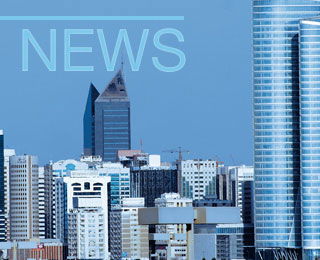Dangote Cement announced a 13.5 per cent rise in group revenues to NGN685.29bn (US$1.88bn) for 9M18 as sales volumes advanced 7.6 per cent to nearly 17.8Mt. Group EBITDA rose 14.6 per cent YoY to NGN337.3bn while EBITDA margins advanced from 48.8 per cent in 9M17 to 49.2 per cent in 9M18. Net profit advanced to NGN158.28bn in 9M18 from NGN154.122bn in the year-ago period.
Nigeria
In Nigeria sales volumes increased 11.7 per cent to nearly 10.8Mt on the back of a domestic market recovery. The company estimates that Nigerian cement demand rose by 9.6 per cent YoY to 15.55Mt in the first nine months of 2018 although September sales were affected by heavy rain and flooding in key markets. Revenues reached NGN471.33bn while EBITDA stood at NGN306.28bn with the EBITDA margin at a stable 65 per cent. Profit after tax was NGN237.9bn.
Pan-African sales
Pan-African sales volumes remained level at 7Mt, mainly due to the production slowdown in Tanzania, disruption in Ethiopia and lower sales in Ghana. However, the company reported strong performance in other pan-African countries, particularly in Zambia and Sierra Leone. This resulted in revenues of NGN214.31bn and EBITDA of NGN39.128bn. The EBITDA margin advanced from 16.9 per cent in 9M17 to 18.3 per cent in 9M18. However, the results led to a loss after tax of NGN50.054bn.
In terms of individual pan-African countries, the Cameroonian market continues to grow with demand at 2.3Mt in 9M18, up 8.6 per cent when compared with 9M17 due to a buoyant housing sector, driven by improved access to finance. In addition, infrastructure projects to support the African Cup of Nations in 2019 are also boosting cement demand. Dangote’s 1.5Mta clinker facility in Douala sold around 0.9Mt of cement in the 9M18.
In the Republic of Congo, where Dangote operates a 1.5Mta integrated plant in Mfila, the cement market is fuelled by private infrastructure projects as the financial crisis is inhibiting public spending. In the 9M18 the company sold 155,000t, including growing exports to Central African Republic.
Sales in Ethiopia were down 11.1 per cent YoY as the 2.5Mta Mugher factory sold nearly 1.5Mt of cement. The company has attributed the set-back to production stoppages and transport issues associated with civil unrest. However, it expects a better performance going forward as unrest has subsided.
In Ghana Dangote Cement sold around 610,000t of cement in 9M18, representing a decline of nine per cent YoY as imported cement availability was limited due to the company reducing exports by road from Nigeria.
The cement producer’s 1.5Mta facility in Pout, Senegal, saw sales increase around six per cent YoY to 1.1Mt in the January-September 2018 period.
Following the Ebola crisis, the Sierra Leone market is now picking up – a trend also reflected in Dangote’s sales, which were up 22.1 per cent YoY to 83,000t.
However, in South Africa general economic conditions affected Dangote’s sales, which fell by 10 per cent in the third quarter and 9M18 sales were 3.5 per cent lower YoY.
In Tanzania the cement producer hoped to benefit from a strong market but stoppages affected sales, which reached 409,000t in the 9M18. But in August Dangote Cement Tanzania signed an agreement with Tanzania Petroleum Development Corp for the supply of gas and the works has been running on 25MW gas turbines since September.
Zambia’s lower rainfall and better harvest had a positive impact on cement demand as did lower interest rates and improved mining output. Dangote’s 1.5Mta in Ndola sold nearly 768,000t of cement in 9M18, a 40.9 per cent increase when compared with the 9M17. The rise in sales was supported by improved distribution through the use of additional third-party trucks and rail networks.
Commenting on the results, Joe Makoju, Group CEO, said: “Dangote Cement continues to perform strongly in 2018 with Group volumes up 7.6 per cent and revenue up 13.5 per cent, driving a 14.6 per cent increase in EBITDA. Nigerian sales were affected by serious flooding in September and although Pan-African sales were flat, we will see soon increased sales from Tanzania now that its gas turbines are installed, and from Ethiopia as local community issues are resolved. We have launched new products in Nigeria that we believe will help us improve our leadership position in Africa’s most exciting market for cement.”
